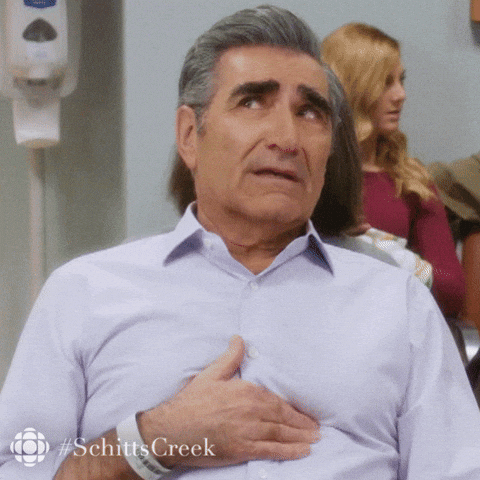GERD, Antacids, and the Acid Myth
WHAT’S REALLY GOING ON WITH YOUR DIGESTION
If you’ve had your gallbladder removed—or even if you haven’t—but still struggle with reflux, bloating, or a burning throat, you’re not alone. And you’re not broken. Let’s dig into what’s really happening and how to support your body instead of suppressing it.
THE GALLBLADDER-REFLUX CONNECTION
After a recent post on gallbladder health, I heard from so many of you dealing with GERD symptoms—heartburn, bloating, regurgitation, chronic cough, or that “lump in the throat” feeling after meals.
Here’s the thing: GERD often isn’t about too much acid.
It’s about acid in the wrong place at the wrong time.
And if your gallbladder has been removed—or your bile is sluggish—that timing gets even trickier.
Bile helps break down fats, stimulate digestive enzymes, and move food efficiently through the gut. Without it (or when it's slow), meals can sit too long in the stomach. That extra pressure pushes stomach contents—including acid—upward, into the esophagus, where they don’t belong.
And voilà: reflux.
GERD ISN’T ALWAYS WHAT WE THINK IT IS
Gastroesophageal Reflux Disease (GERD) happens when stomach contents repeatedly back up into the esophagus, causing uncomfortable symptoms or even tissue damage over time.
But let’s be clear: Stomach acid levels in people with GERD are usually normal—or even low. Not high.
It’s the motility, pressure, and tone of the digestive tract that are often off, not the acid itself. (Curious how this works? This post on the esophagus explores how reflux affects the upper digestive tract, and this one on the stomach breaks down how food moves—and what happens when it doesn’t.)
Add in stress, poor sleep, belly weight, medications, or missing organs (hello, gallbladder), and it’s easy to see how things go awry.
WHEN ANTACIDS BACKFIRE
Understandably, many people reach for or are prescribed antacids or PPIs (proton pump inhibitors like Prilosec or Nexium) to cope. These can bring short-term relief—but long-term use can create a cascade of new problems:
B12, iron, and magnesium deficiencies
Delayed digestion and increased risk of SIBO
Increased risk of pneumonia, C. diff or other gut infections
Higher risk of bone loss and fractures
Often due to poor absorption of calcium, vitamins D and K, and gradual magnesium depletion over time
Rebound reflux (that frustrating “it came back worse!” feeling when you stop them)
Suppressing acid may ease symptoms temporarily, but it doesn’t fix the root issue—and can quietly make things worse.
We need stomach acid—not just for digestion, but for protecting us. Suppressing it long-term opens the door to deeper issues like kidney disease, dementia, even earlier mortality.
ROOT-CAUSE SUPPORT: WHAT YOU CAN DO
Here’s the good news: most cases of mild to moderate GERD can improve without lifelong medication by supporting your body’s natural rhythm.
Get things moving
Take walks after meals to improve gastric motility (and improve insulin sensitivity)
Practice deep belly breathing to tone the diaphragm and lower esophageal sphincter (LES)
Avoid overeating—stop at 80% full (a Japanese practice called hara hachi bu)
Gentle digestive stimulation
Bitters (like yarrow, artichoke or gentian) can help improve stomach acid production and bile flow—but go slow.
For those with more active reflux or burning, stronger bitters may aggravate symptoms. Start with a gentle formula or a drop or two in water to test tolerance. If you’re curious how bitters support digestion check out this post on gallbladder support for a deeper dive.
Support the stomach lining
DGL (deglycyrrhizinated licorice) – 2 chewables 10-15mins before meals or before bed
Marshmallow root, slippery elm, chamomile – teas or powders to soothe inflamed tissue
Zinc carnosine – helps heal and protect the mucosal lining (and improves leaky gut too)
Strengthen tone with melatonin
3mg at night can improve sleep and LES tone (yes, melatonin supports digestion too!)
Release pressure
Craniosacral therapy can gently relax the diaphragm, improving breathing and esophageal tone
Avoid tight waistbands or abdominal compression (yes, even your cute high-waisted jeans)
Eat for ease, not inflammation
Smaller meals throughout the day
Don’t eat within 3 hours of bedtime (laying down)
Mediterranean-style diet with fiber, vegetables, and lean proteins
Avoid common triggers like caffeine, alcohol, peppermint (which relaxes the LES), tomato sauce, chocolate, and greasy foods—especially in concentrated amounts (read the previous blog to learn how to support GB with fat digestion)
For high-quality practitioner-grade supplements, you can visit my Fullscript dispensary for personalized access to trusted products.
COMING OFF ANTACIDS SAFELY
If you're already on a PPI or H2 blocker, don't panic. You can come off them—just don't go cold turkey.
A gentle taper, like reducing your dose by 25-50% weekly, helps avoid rebound reflux.
At the same time, bring in natural supports like DGL, melatonin, bitters, and lifestyle changes to help your body adjust and heal.
Work with a practitioner if possible, especially if you’ve been on them for a while.
YOU’RE NOT BROKEN
If there’s one thing I want you to take away from this: your body isn’t malfunctioning—it’s trying to adapt.
Reflux is often a symptom of stagnation, pressure, or imbalance, not an overproduction of acid. Instead of suppressing signals, we can listen to them—and work with the body to restore flow.
Support motility. Soothe the tissues. Strengthen tone. Give the body what it needs to do what it’s designed to do.
And remember: healing doesn’t always require a prescription—sometimes it just starts with understanding.
If this resonated, I invite you to share it with someone you know who’s struggling with reflux or feels stuck on antacids. Small shifts can make a big difference.



